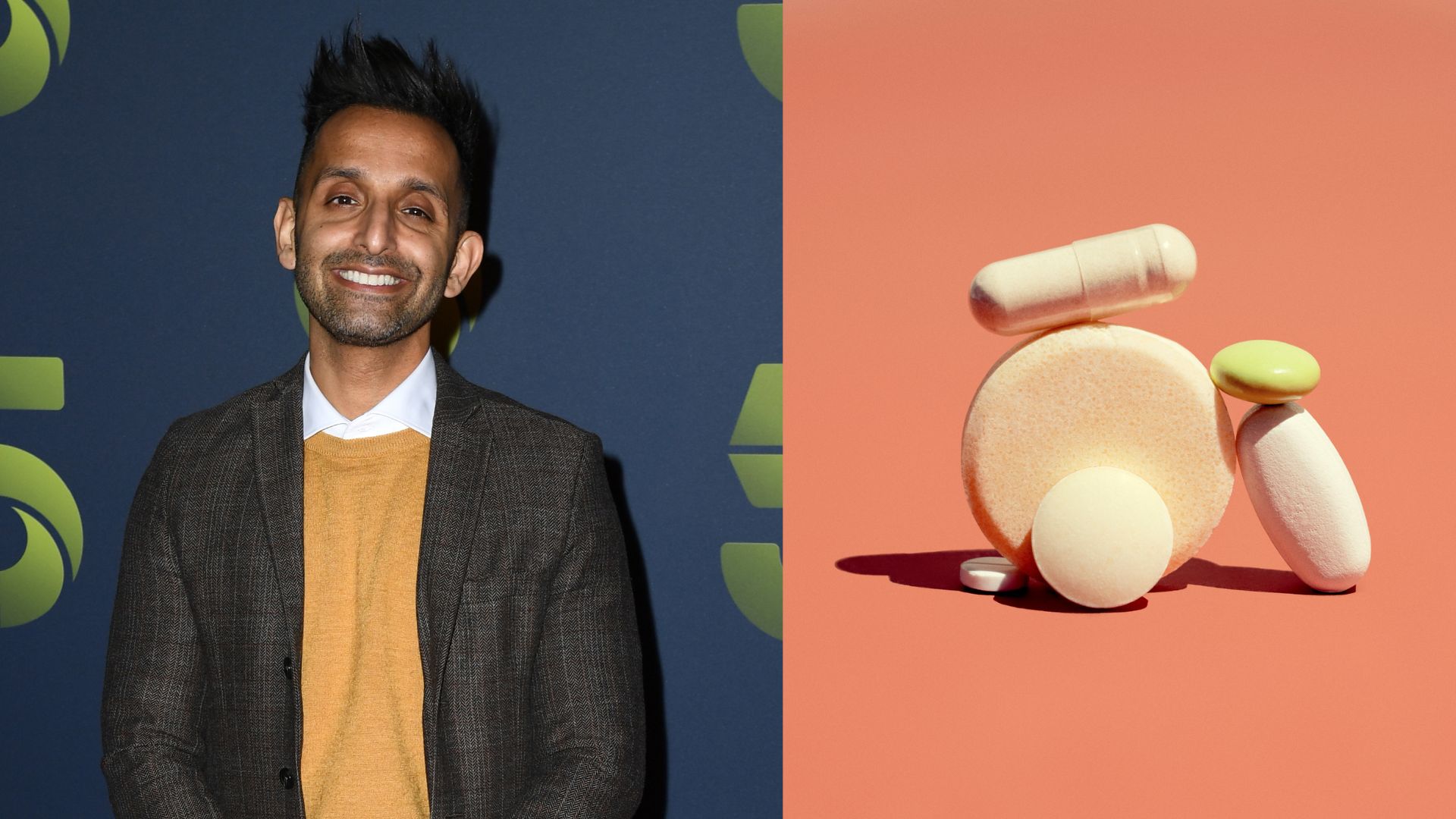Dr Amir explains the difference between vitamin D2 vs D3 - and reveals which one you should take this winter
It's that time of year again - and woman&home's resident GP has taken to Instagram to share all you need to know about vitamin D2 vs D3


Sign up to our free daily email for the latest royal and entertainment news, interesting opinion, expert advice on styling and beauty trends, and no-nonsense guides to the health and wellness questions you want answered.
You are now subscribed
Your newsletter sign-up was successful
Want to add more newsletters?

Daily (Mon-Sun)
woman&home Daily
Get all the latest beauty, fashion, home, health and wellbeing advice and trends, plus all the latest celebrity news and more.

Monthly
woman&home Royal Report
Get all the latest news from the Palace, including in-depth analysis, the best in royal fashion, and upcoming events from our royal experts.

Monthly
woman&home Book Club
Foster your love of reading with our all-new online book club, filled with editor picks, author insights and much more.

Monthly
woman&home Cosmic Report
Astrologer Kirsty Gallagher explores key astrological transits and themes, meditations, practices and crystals to help navigate the weeks ahead.
As the weather changes and temperatures drop, one thing should come to mind: vitamin D. It's one of the most essential vitamins for our health, yet it's an easy one to forget as we top up our levels through the sunshine during the summer months.
Earlier this month, Dr Amir Khan shared the important breast cancer signs to look out for. Now, he's back on social media with the lowdown on vitamin D.
One of the most common vitamin D questions posed to GP Dr Amir Khan, our resident medical expert and also a frequent guest on shows like ITV's This Morning and Lorraine, is whether we should take vitamin D2 vs D3. Surely they are the same thing? Certainly not, says Dr Khan.
Vitamin D2 vs D3
It's vitamin D3 (cholecalciferol) that we need to stay healthy, the doctor says, and we need this version because that's what our skin makes when it's exposed to sunlight.
When the sun's ultraviolet B (UVB) radiation hits our skin during the sunnier months of the year, the light triggers the formation of vitamin D3 from a compound in the skin called 7-dehydrocholesterol, according to research.
"Studies show that vitamin D3 keeps your vitamin D levels higher for longer when compared to vitamin D2, which breaks down quicker," the doctor told followers on Instagram.
So, when out buying your vitamin tablets for the winter, be sure to look out for vitamin D3 labels.
Sign up to our free daily email for the latest royal and entertainment news, interesting opinion, expert advice on styling and beauty trends, and no-nonsense guides to the health and wellness questions you want answered.
A post shared by Dr Amir Khan GP (@doctoramirkhan)
A photo posted by on
Dr Amir Khan also took the opportunity to clear a few things up about vitamin D, which is "essential for bones, muscles, mood, our hormones", and lots of other vital bodily processes.
The vitamin "helps you absorb calcium from your diet", but we often don't get enough (unless we eat "huge volumes" of oily fish like sardines and mackerel every day, of course). "So, we have to get it through sunlight," he says.
"However, in the UK and the northern hemisphere, there isn't enough sunlight for us to make enough vitamin D, so you should supplement it."
How much vitamin D3 should we take?
"Children five and above and all healthy adults in the UK should be supplementing their vitamin D from October through to March," says Dr Amir. "That's 10 micrograms, 400 international units."
"Children one to four, older adults over 65, those in care homes, those with darker skins, those who cover up mostly should be taking a vitamin D supplement all year round," he adds. That means having a vitamin D supplement in summer as well.
What about magnesium and vitamin K2?
One of the most common questions around vitamin D is whether you can take it by itself or if you should take it with other supplements. In this case, it's the first option.
"You do need magnesium to activate vitamin D so it can absorb that calcium," says the doctor, but you don't need to take a magnesium supplement alongside your vitamin D.
"If you've got a healthy, balanced diet, you don't need magnesium supplements. You can get it from dark green leafy vegetables, nuts, and seeds. That's enough magnesium," he says. These are among the foods rich in vitamin D.
What about vitamin K2? "[This vitamin] directs the calcium to your bones instead of your arteries, but again you should be getting it in your diet," he says. "Think leafy green vegetables, broccoli, cheeses, yoghurts. You don't need to supplement it."
Of course, if you have any questions about what to supplement in your diet or how much to take, always speak to your doctor first.

Grace Walsh is woman&home's Health Channel Editor, working across the areas of fitness, nutrition, sleep, mental health, relationships, and sex. She is also a qualified fitness instructor.
A digital journalist with over seven years experience as a writer and editor for UK publications, Grace has covered (almost) everything in the world of health and wellbeing with bylines in Cosmopolitan, Red, The i Paper, GoodtoKnow, and more.
You must confirm your public display name before commenting
Please logout and then login again, you will then be prompted to enter your display name.